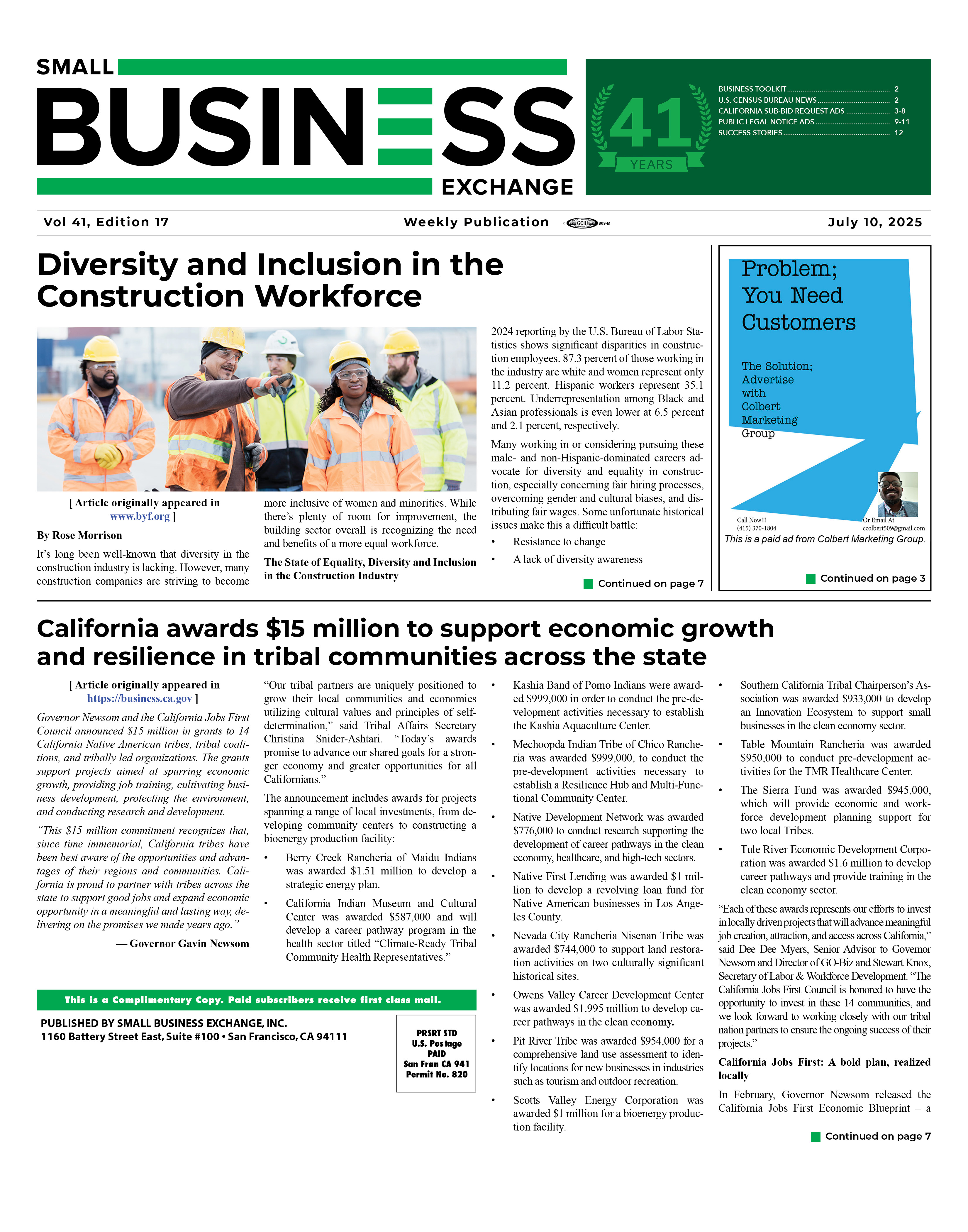I am excited to participate alongside you in celebrating and promoting women’s entrepreneurship. As NAWBO looks forward to its 45th anniversary next year, let’s take a moment to recognize the tremendous amount of success you have already achieved.
I learned that NAWBO got its start back in 1975 with a few women who were ahead of their time with the idea to create a professional business community. It’s remarkable that you now have 60 chapters and nearly 5,000 members across the United States and a presence in more than 60 countries worldwide. This is an amazing feat which all entrepreneurs, not just women should celebrate!
Because of your efforts – one of the most transformational initiatives for women, the Women’s Business Ownership Act, was signed into law by President Ronald Reagan in 1988. And since then, women and girls all across America have had the rights and the increased resources they need to not only start a business, but grow and scale it into a successful enterprise. I always say that success as entrepreneurs isn’t just about us having seat in the boardroom, or running our own companies, it’s about controlling our own fates, and empowering women in societies here in America and around the world.
Although 1988 doesn’t sound like a long time ago, it was a different world for women business owners – many states required a male relative to co-sign a business loan. The Women’s Business Ownership Act changed that, by allowing women to gain control of their finances. This transformed the landscape of women’s entrepreneurship, making it one of the fastest growing segments of the U.S. economy, and contributing to national GDP.
And looking at milestones, next year, we will celebrate the 100th anniversary of the Nineteenth Amendment. The right to vote was a fundamental transformation for women in and of itself, however, it also paved the way for monumental changes in the way we are now able to participate in every facet of the society and the economy.
Your efforts come at a pivotal moment, as we in the U.S. government are focusing on promoting extensive platforms that will increase every opportunity for women all over the world to have the training, mentorship and resources they need not only to compete, but to succeed in every marketplace.
I couldn’t agree more with the line featured on the NAWBO website: “Success is a combination of being at the right place, at the right time, and doing something about it. For entrepreneurs and women in general, that place and time is right now.”
I always reiterate to my team in Washington, that we must constantly work to connect with U.S. businesses and support their work, leveraging those connections to spread American prosperity. This is especially true when it comes to women-owned and women-led businesses.
I was very happy to see that in 2018, Florida had the fastest growth rate of new women-owned business in the nation with a 58% increase since 2007, according to a report by American Express
Women entrepreneurs like you are driving nation-wide progress on employing more workers and bringing prosperity to the small towns that are the heart of American economic activity. As a native Floridian, I am so pleased to see my home state doing well in an area that I believe is critical to our national economic growth.
My mission as Assistant Secretary of the Economic Bureau at the State Department is to level the playing field for U.S. companies, to boost opportunities for U.S. exporters, and to ensure that we advance women’s economic empowerment throughout all our lines of effort.
When it comes to women’s enterprise, we’ve come a long way, but there is still work to be done.
Organizations like NAWBO enable us to come together and discuss how to overcome the challenges we still face and seize opportunities for every woman.
Our current National Security Strategy states that “Societies that empower women to participate fully in civic and economic life,” are “more prosperous and peaceful.” The Administration will “support efforts to advance women’s equality, protect the rights of women and girls, and promote women and youth empowerment programs.”
In early February, the President officially launched the Women’s Global Development and Prosperity Initiative (W-GDP). Exactly as the name implies, when women participate fully in the labor force, the GDPs of nation’s rise. The W-GDP is the first whole-of-government effort to advance global women’s economic empowerment. The initiative aims to reach 50 million women by 2025 and will focus on the following three pillars: (1) Women’s Entrepreneurship, (2) Workforce Development and (3) Enabling Environment.
Through W-GDP, the United States is committed to expanding entrepreneurship, unleashing access to capital and technology, enhancing women’s labor force participation, and addressing the underlying barriers that prevent women’s equal participation in the economy.
We recognize that advancing women’s economic participation is fundamental to achieving our economic policy goals. I believe we accomplish this goal by engaging the private sector to promote women’s economic empowerment.
Whether we are paving the way for businesses to access overseas markets, negotiating air transport agreements, or supporting innovation by bolstering intellectual property protections, we are working toward a better and stronger business environment. Very simply, that means better supporting YOU.
There is an expression, “if she can’t see it, how can she be it?”
I hope that the next generation of women see themselves as leaders and that women’s economic empowerment is not necessarily a topic of discussion, because women are just naturally there. And that starts here, and I believe it starts with ensuring the private sector understands that investing in women is about economic success. I work to better connect the Department to the private sector. My goal is to ensure U.S. private sector concerns are integrated into our policy priorities.
I want to tell you a little bit about my bureau’s POWER – or the “Providing Opportunities for Women’s Economic Rise” Initiative. POWER is a multi-tiered program that connects the U.S. private sector with U.S. government initiatives overseas on women’s economic empowerment issues. I am particularly excited to tell you about it because a group of NAWBO entrepreneurs were part of the inspiration for this initiative. Last year, I met with a NAWBO members, who were amazingly successful here in the U.S. and they asked me about scaling their enterprises globally. And in my travels, I heard the same from women entrepreneurs in Europe, Asia, Africa, everywhere.
And I thought maybe I can do something to connect all of these amazing women around the world and empower them by connecting them to each other and to opportunities.
So POWER uses a coordinated channel to convene and work with U.S. private sector entities. This group includes women business owners, industry experts, and investors, who will identify and link U.S. private sector priorities to opportunities abroad in support of women in business.
Over the past year, my team has been meeting with U.S. private sector firms to better understand the needs and challenges they see when it comes to economically empowering women. We have spoken with over a dozen U.S. companies and private sector entities, including NAWBO, which has been a vital stakeholder to help us better identify issues women like yourselves are facing when building and expanding your business.
In the coming year, we look forward to deploying our programs and serving as a partner for private sector partners looking to work together to empower women globally.
I wanted to describe one story that I found particularly meaningful.
When officers at one of our embassies in South America noticed that very few of the bidders on embassy contracts were women, they dug deeper to see how they could better engage women-owned businesses. The answer actually was not that complicated.
They developed an outreach program focused on procurement training for women-owned businesses. Within one year, this prompted an increase from $70,000 in embassy contracts with women-owned businesses in 2016 to over $580,000 in contracts in 2017.
By engaging in this way, the embassy increased competition in the market, which in turn lowered costs for U.S. taxpayers.
This is one of many examples demonstrating that economic empowerment of women is not just the right thing to do, it is smart business. But we need to keep pushing the envelope and seizing opportunities. I will be working with my team in DC to see how we can take this success story in South American and replicate it globally. We will work to see how we can engage more women business owners, both here and abroad.
Expanding female participation in the global economy – particularly at the highest levels – is more than just good policy: it is good economic policy. It is an opportunity that we can seize if we work together. It is an opportunity that will influence generations to come.
As the daughter of immigrants who came from India to Florida, I never take for-granted the opportunities this great country has offered me. And all of you are inspirational to me as American success stories. Let me close by saying that we, at the Department of State, are in your service. We want to be partners in your success. Let us know how we can help!
SOURCE: https://www.state.gov/remarks-at-the-national-association-of-women-business-conference/






